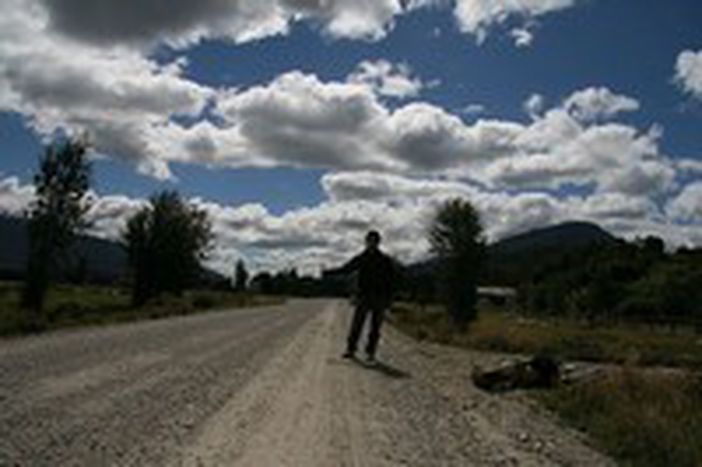
Hitch-hiking from Brussels to Berlin
Published on
Translation by:
 sarah meleleu
sarah meleleu
A journey through Belgium, Germany and their citizens image of Europe
The 50th anniversary of the Treaty of Rome on 25 March 2007 called for a hitch-hike from Brussels to Berlin, with many interesting views on the European Union along the motorway. It’s 804 kilometres (500 miles) and 14 hours from the self-proclaimed Belgian ‘European capital’ to Berlin's Brandenburg Gate. 'Fortunately for us, we citizens of the European Union are united,' the birthday text of the Berlin Declaration later declares. But what do the people on the road think?
'Europe must act as a power for peace'
The route from Brussels to Berlin only goes through Belgium and Germany, two federal states with strong regional identities and national awareness. 'Bruges is one of the four most significant Hanseatic cities,' Luk explains from behind the wheel. 'At that time, Europe was already united around the North and Baltic Sea.' Luk was born in Bruges and lives in the old part of the town, which belongs to the World Heritage of UNESCO. 'The Hanseatic time is over. But I am proud of my town. I can also see a united Europe in the future, where Belgium is just another state.'
The conversation spins round to different identities, be they local, regional, national, European or global. However, it becomes clear that the EU's advantages and disadvantages aren’t just about identity. It has much more to do with completely unrelated issues. Luk was born two years before the EU, in 1955, and has grown up with it.
'Nowadays people have forgotten that more than anything, we need Europe to maintain peace,' he says. 'We’ve endured two World Wars and we have achieved peace between us. Therefore Europe must act as a power for peace. Yet no-one talks about nuclear weapon disarmament. Iran now takes advantage of that.' The EU may have been trying to set up common foreign and safety policies, but Brussels doesn’t have sufficient powers in comparison to the member states. Effectively, it still doesn’t make its voice heard.
Easy solutions for Europe
Other people we meet on the way are more interested in the outcome than task distribution in Europe. They complain that billions of Germans are investing in a new toll system on their own instead of teaming together with Austria and Benelux - or even better, finding a solution for the whole of Europe. Different systems cost time and money. What’s good is what makes life easier for all Europeans.
Michael from Bavaria, who has been driving heavy goods vehicles through Europe for twelve years, believes that people still don’t really trust the new central and Eastern European member states. At the moment, he is transporting a yoghurt drink, of which production has been temporarily moved to Poland. The trip from to the warehouse distributing the product only took place once. The place of production has to be marked on the packaging and the sales fell through. Now he is driving to Belgium again.
Fear of 'Einheitsmauschelei'
Nevertheless integration is moving forward, on the streets as well. Günther, a 50-year-old engineer who travels around programming lathes, often picks up hitch-hikers. Recently there have been many from Eastern Europe. At first, he says he was suspicious. 'But one day I picked up a student from Belarus. He impressed me. He was very friendly, open, educated – and so happy to be able to travel through Europe like this. Since then I have been able to read faces better.'
In the last stage of the journey we meet Helmut, a theatre director from East Berlin. The qualified actor suffered under the GDR regime. As a rule, he is suspicious when regulations come from above. When asked whether he will celebrate the 50th anniversary of the EU Treaty, his answer is short and brusque. 'We’ve had that before here in the East, this Einheitsmauschelei (where everyone has to say the same thing).'
Translated from Nur das Ergebnis zählt


